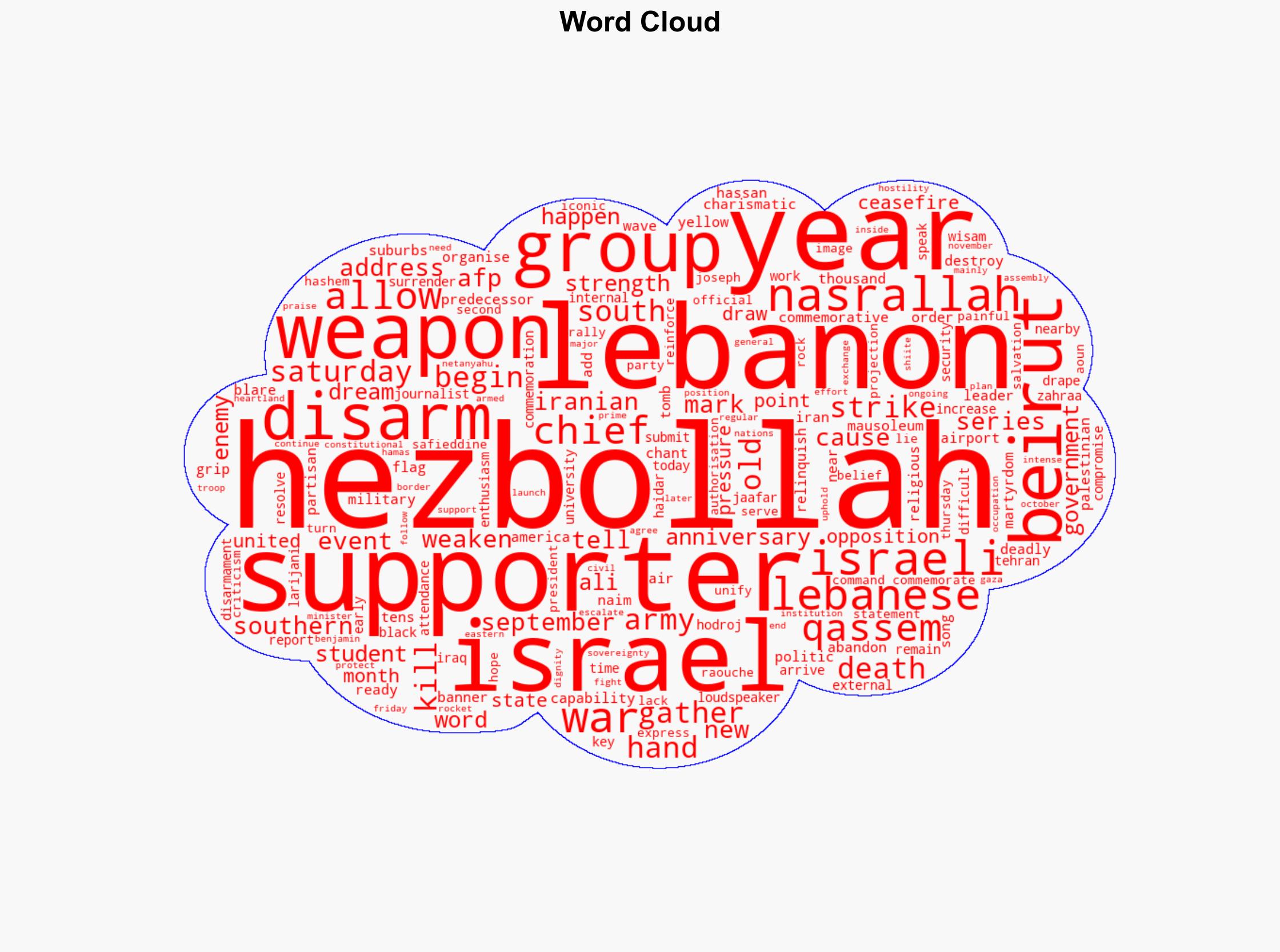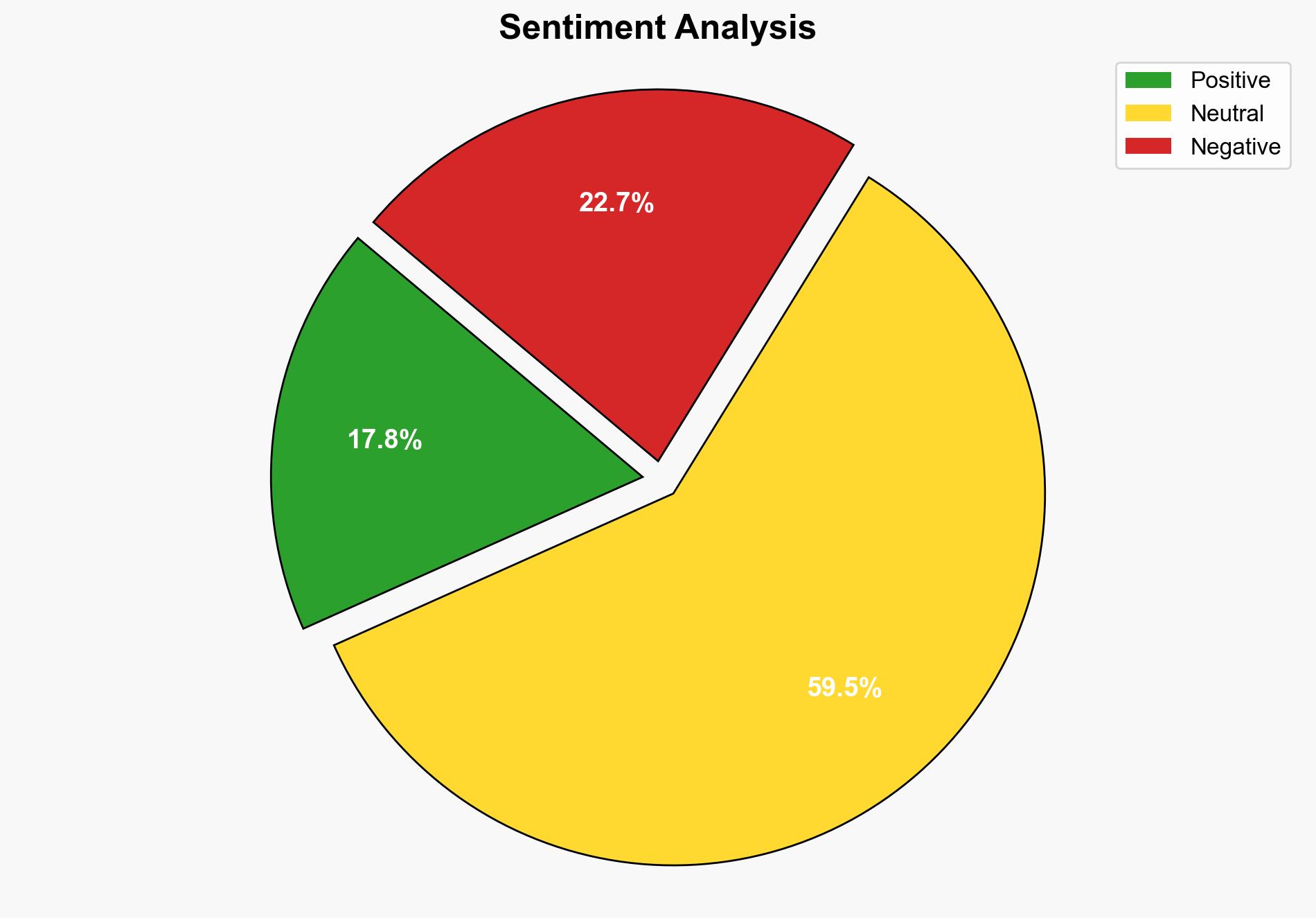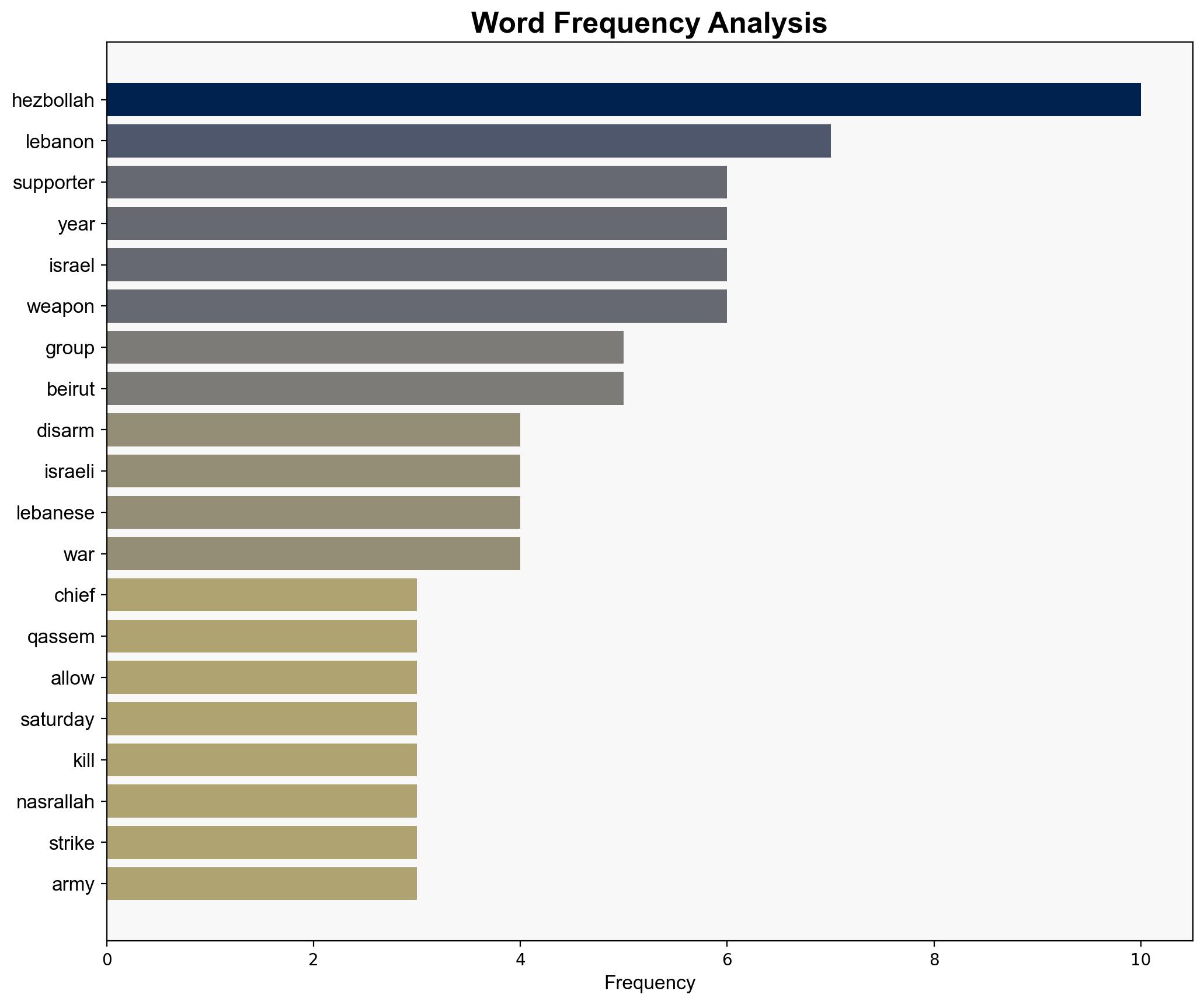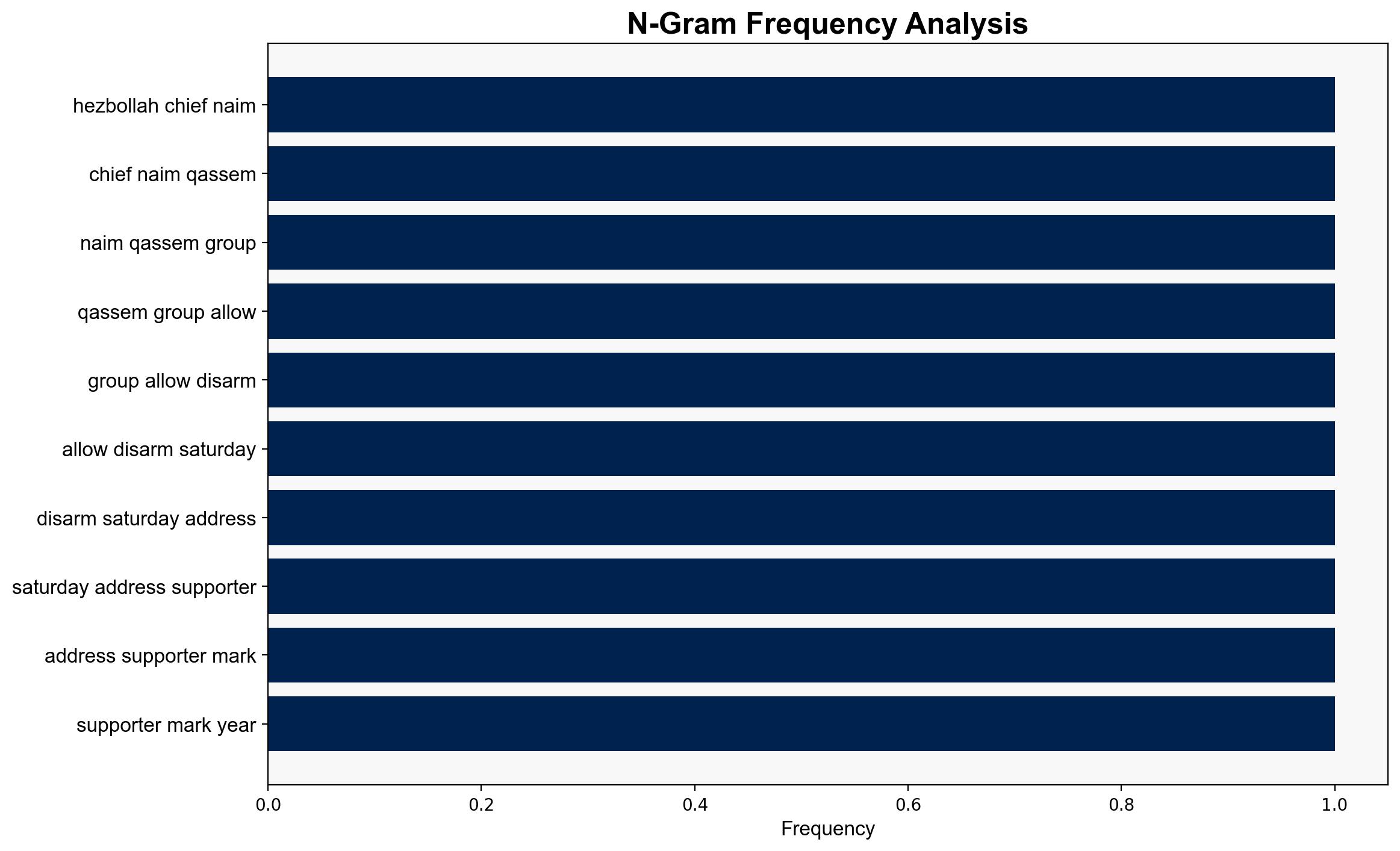Hezbollah Says It Refuses To Be Disarmed One Year After Leader’s Killing – International Business Times
Published on: 2025-09-27
Intelligence Report: Hezbollah Says It Refuses To Be Disarmed One Year After Leader’s Killing – International Business Times
1. BLUF (Bottom Line Up Front)
Hezbollah’s refusal to disarm, despite international and domestic pressure, suggests a strategic entrenchment supported by Iran. The most supported hypothesis is that Hezbollah aims to maintain its military capabilities to leverage political influence in Lebanon and counter Israeli actions. Confidence level: Moderate. Recommended action: Increase diplomatic efforts to engage regional stakeholders, including Iran, to address Hezbollah’s military status and its implications for regional stability.
2. Competing Hypotheses
Hypothesis 1: Hezbollah refuses to disarm to maintain its political leverage in Lebanon and counterbalance Israeli military actions. This hypothesis is supported by Hezbollah’s historical role in Lebanese politics and its strategic use of military capabilities as a deterrent against Israel.
Hypothesis 2: Hezbollah’s refusal to disarm is primarily driven by Iranian influence, aiming to preserve a proxy force in Lebanon to project power in the region. This is supported by the presence of Iranian officials at commemorative events and historical ties between Hezbollah and Iran.
Using Analysis of Competing Hypotheses (ACH), Hypothesis 1 is better supported due to the direct statements from Hezbollah leaders emphasizing their military role in Lebanon and the symbolic actions taken during the commemoration of their leader’s death.
3. Key Assumptions and Red Flags
Key Assumptions:
– Hezbollah’s military capabilities are crucial for its political influence in Lebanon.
– Iran’s support is pivotal for Hezbollah’s operational sustainability.
Red Flags:
– Potential underestimation of internal Lebanese political dynamics that could influence Hezbollah’s decisions.
– Lack of direct evidence linking recent Iranian strategic directives to Hezbollah’s current stance.
4. Implications and Strategic Risks
The refusal to disarm could lead to increased tensions in Lebanon, potentially destabilizing the region further. The continued military presence of Hezbollah poses a risk of escalation with Israel, which could draw in regional powers and impact global energy markets. Additionally, Hezbollah’s actions could influence other non-state actors in the region, potentially leading to a proliferation of armed groups.
5. Recommendations and Outlook
- Engage in multilateral diplomatic efforts involving key regional players, including Iran, to negotiate a framework for Hezbollah’s disarmament.
- Enhance intelligence-sharing mechanisms with regional allies to monitor Hezbollah’s military activities and preempt potential escalations.
- Scenario Projections:
- Best Case: Successful diplomatic negotiations lead to a phased disarmament of Hezbollah, reducing regional tensions.
- Worst Case: Escalation of hostilities between Hezbollah and Israel, leading to broader regional conflict.
- Most Likely: Continued status quo with periodic skirmishes and political stalemate in Lebanon.
6. Key Individuals and Entities
– Naim Qassem
– Hassan Nasrallah
– Ali Larijani
– Benjamin Netanyahu
7. Thematic Tags
national security threats, regional stability, proxy warfare, Middle East geopolitics




